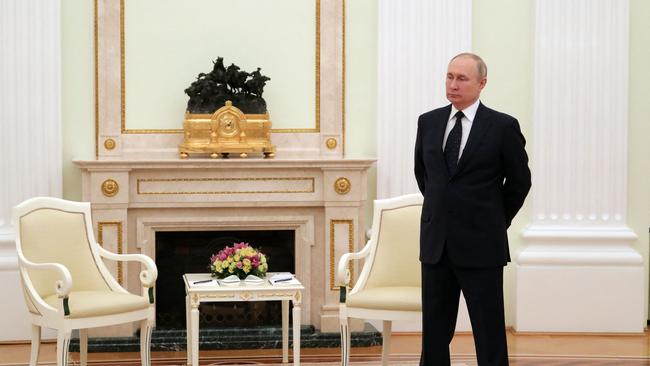Russia may default on its debt for the first time in more than a century, and what it means?
A Russian default on its foreign currency debt would be its first in more than a century.

WILL RUSSIA DEFAULT ON ITS DEBT?
Russia was due to pay $US117m ($160m) in interest on two US-dollar denominated sovereign bonds on Wednesday – the first event of its kind since the west responded to the invasion of Ukraine with a raft of economic sanctions.
Moscow reportedly said it had sent the interest payments for processing, but it could not guarantee investors would receive the cash.
Sanctions have severely constrained the Central Bank of Russia’s access to about $US640bn in foreign currency reserves, which in other circumstances would be used to service sovereign debt obligations.
While the Finance Ministry said early this week it had ordered a correspondent bank to make the payments, it’s unclear if it was possible in the current environment. The alternative, according to the Ministry, was to pay in roubles, but the force of the sanctions has caused the local currency to collapse.
Missed coupon payments trigger a 30-day waiting period before a country is officially in default.
Until late February, Russia had enjoyed investment-grade status, but the country’s credit rating has now been slashed to “junk”, with Fitch Ratings saying a default is “imminent”.
HOW MUCH DOES RUSSIA OWE AND WHO ARE THE CREDITORS?
Russia has 15 international bonds with a face value of $US40bn. About half of the bonds are held by institutional investors.
HAS THIS HAPPENED BEFORE?
Russia’s last major foreign-currency debt default was over a century ago, when the Bolsheviks failed to recognise Tsarist debt in the wake of the 1917 revolution.
In 1998, however, Russia defaulted on rouble-denominated bonds – an event which came on top of an Asian financial crisis and caused worldwide financial disruption.
US banks had to step in to bail out the big hedge fund Long-Term Capital Management, amid fears its collapse could threaten the stability of the financial system.
WHAT COULD THE IMPACT BE THIS TIME?
While experts say that every sovereign default is different, they are heartened by a number of factors.
First, a default would no longer be a surprise, so at least some of the impact has already been felt.
Second, there is no accompanying financial crisis like there was in Asia in the late 1990s. And third, foreign investors have already lightened their exposures to Russia after the country annexed Crimea in 2014.
International Monetary Fund head Kristalina Georgieva said the war was having devastating consequences, with human suffering and the impact on energy and food prices, but a default by itself would “definitely not be systemically relevant” for banks around the world.
That said, bondholders could face significant losses – likely to be in the range of US35c to US65c in the dollar.
WHAT HAPPENS IF A COUNTRY DEFAULTS?
Often a settlement is negotiated where new bonds are issued at a lower value, but sanctions would make this difficult. While Russia could still borrow in its domestic market, it will be shunned in western markets until the default is remedied.
Investors might have to wait things out, writing off their bonds pending a de-escalation in the conflict and easing of sanctions.
In the meantime, they could seek repayment through UK or US court judgments enabling seizures of Russian assets held offshore, or a payout on credit default swaps – insurance-like derivatives purchased for protection against default.
Settlement of the swaps would also have to navigate its way through financial sanctions.



To join the conversation, please log in. Don't have an account? Register
Join the conversation, you are commenting as Logout